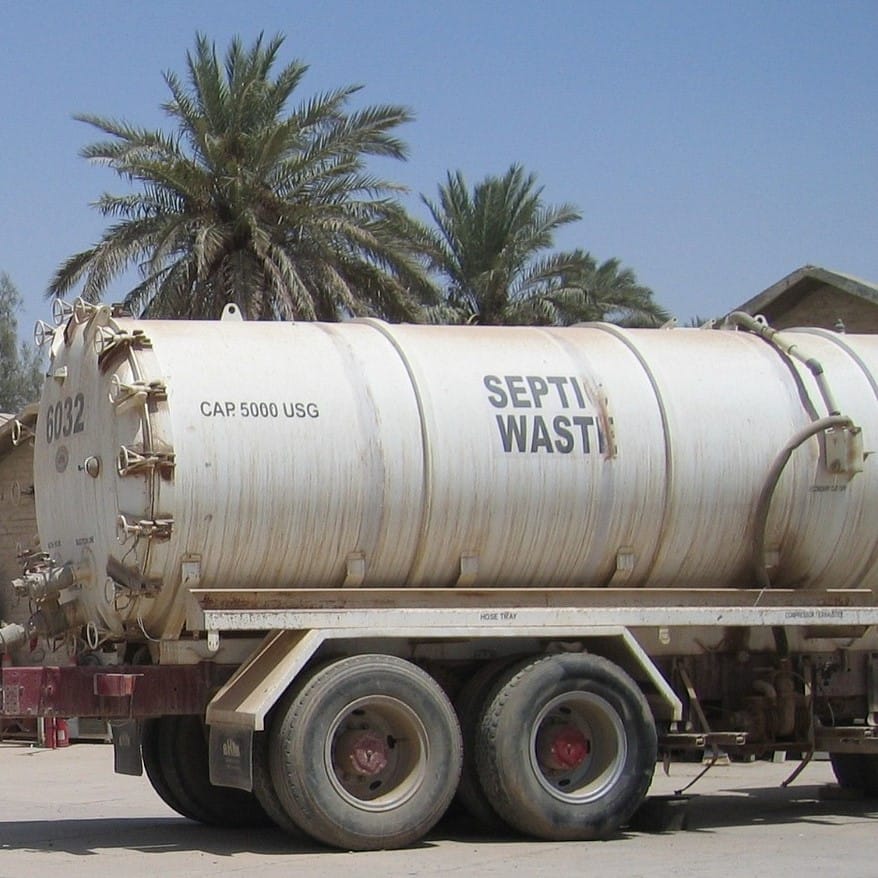Septic businesses need to use effective marketing strategies in order to attract new customers and stay one step ahead of their competitors. Using SEO for septic companies is crucial to achieving this since it boosts website visibility and organic traffic from search engines like Google.
Table of Contents
ToggleHow does SEO for septic companies work?
SEO or search engine optimization, encompasses a range of strategies aimed at enhancing a website’s ranking in search engine results pages (SERPs). This includes conducting keyword research to identify the terms potential customers are using to search for septic services and incorporating them strategically throughout the website.
SEO also includes making the website more user-friendly, mobile-friendly, and having a faster load time. Septic companies may boost their website’s exposure and draw in more prospective clients by putting good SEO methods into practice. This will also help search engines identify the website as important and relevant, which will eventually result in better results.



Boost your business’ website now!
Strategies of SEO for Septic Companies
Septic businesses must put in place a comprehensive strategy that takes into account both technical and content-related factors if they want to benefit from SEO. Here’s a breakdown of key SEO strategies:
On-Page SEO for Septic Companies
The goal of on-page SEO is to raise your website’s search engine rankings by improving the content on its individual pages. This covers elements such as:
Keyword Research
Choose high-volume, relevant keywords that correspond with the search intent of your target market. To find these keywords efficiently, use keyword research tools.
- Perform in-depth keyword research to find the terms that potential customers use while looking for septic services nearby. Words like “septic tank pumping,” “septic system installation,” or “septic tank maintenance” may fall under this category. To make sure you are targeting the most beneficial keywords for your septic business, you should also think about examining the search volume and level of competition of each words
- Prioritize long-tail keywords that are more specific and less competitive. These long-tail keywords are often easier to rank for and can attract highly targeted traffic to your website. This include terms like “Residential septic tank pumping services in Los Angeles”, “How to maintain a septic system in a vacation home” “Emergency septic repair in Los Angeles” or “Cost of septic tank installation for a three-bedroom house”.
- Make use of keyword research tools such as Google Auto-suggest, Ahrefs, Semrush, and Google Keyword Planner. These resources may provide insightful information on the amount of searches and level of competition for certain keywords. With the aid of these tools, you can decide which keywords are most important for your SEO strategy.
Here’s how to use Google Auto-Suggest and Google Keyword Planner:
Google Auto-Suggest
Go to Google and type in a seed keyword related to your products and services.
With similar beginning words and phrases, Google will automatically recommend terms that users are likely looking for.

Google Keyword Planner
Go to Google Ads website, login using your Google account, sign up or create an account if you don’t have one.
After logging in, Click “Tools and Settings” then click “Planning” and select Keyword Planner.

Click “Discover New Keywords”

You may type in a seed keyword related to your septic business, products, and services, or you may also enter a competitor’s website.
Choose your target location and language, then click “Get Results”

Google will now provide you with keyword ideas and it will also give details regarding the average monthly searches, competition level and so on. You can download the provided list of keywords by clicking on “Download Keyword Ideas.”
To keep ahead of the competition and draw in more prospective clients for your septic services, you should also routinely review and modify your keyword strategy in light of emerging trends and search patterns.
Content Optimization: SEO for Septic Companies
Provide enlightening, interesting, and well-written material that not only speaks to your target market but also fits in with the keywords you have chosen. Make an effort to provide unique, original material that makes you stand out from your competitors.
- Write case studies, articles, and blog entries that are well-organized and informative and that cover typical problems with septic services and their solutions.
- Share insightful tips and advice on the upkeep and treatment of septic systems.
- Provide clear and concise pricing information for your services.
Answer the Public is a great tool, not just for keyword research but also for content ideas. Here’s how to use it:
Go to Answer the Public, Enter a topic, select your target location and language and Click “Search.”

With just a few steps, Answer the Public will now provide results of highly searched to lowest searched visual chart of prepositions, questions and other keyword information.
Keyword Incorporation
Naturally, include relevant keywords into headers, body text, titles, and meta descriptions of your website. Steer clear of keyword stuffing, since it could negatively impact your rankings.

- Employ keywords strategically in headers, meta descriptions, and page names to enhance search engine exposure.

- Incorporate keywords naturally into the text of your website to ensure natural readability and prevent keyword stuffing.
- Use synonyms, related keywords, and long-tail keywords to diversify your keyword usage.
Optimize Images with Alt Tags
Include relevant alt text for images to convey their context to search engines and enhance accessibility for visually impaired users.

- All of the images on your website should include alt tags that clearly and informatively describe the content of the image.
- Incorporate relevant keywords into alt tags to improve search engine visibility.
- Keep your alt tags away from terms like “image” and “placeholder image.”
Integrate Internal Linking
Within your content, provide links to other relevant pages on your website to create an internal linking structure and enhance website navigation.
- To improve user experience and search engine crawlability, employ internal links to connect relevant material on your website.
- Link to high-ranking pages to boost their authority and indirectly improve the ranking of linked pages.
- Overuse of internal linking should be avoided as it might result in the keyword cannibalization .
Prioritize User Experience
Make sure your website has a responsive design that fits different screen sizes, easy-to-read fonts, and simple navigation to provide a smooth user experience.
- Make advantage of a streamlined, well-organized design with clear menus and a consistent user experience.
- Use a high contrast color scheme and big, readable letters to improve reading.
- Make sure the website is responsive, meaning it will adjust to various screen sizes and devices without any problems.
Discover the many advantages of SEO for your company.
Book Your Free Strategy Call Now!
Off-Page SEO for Septic Companies
In order to increase your website’s authority and credibility in search engines, off-page SEO focuses on creating backlinks and promoting it from outside sources. This comprises elements such as:
Build High-Quality Backlinks
To increase the authority and credibility of your website, get backlinks from reliable and relevant websites.
- Look for guest blogging opportunities on reputable blogs and septic industry websites.
- Engage in septic service-related online forums and groups to demonstrate your knowledge and cultivate connections.
- Collaborate with local businesses to cross-link each other’s websites, creating a network of backlinks.
Engage on Social Media Platforms:
Engage in active conversation with your followers on social networking sites such as LinkedIn, Twitter, and Facebook. Share content from your website, take part in relevant discussions, and cultivate connections with potential clients.
- Provide interesting content via social media that educates and informs people about septic services.
- To increase traffic and visibility, share website’s content on social media.
- In order to cultivate a connection with customers, immediately reply to questions and comments on social media.
Encourage Positive Brand Mentions
To get organic brand mentions, encourage positive mentions of your business and its website on social media, in online forums, and in reviews.
- Encourage clients to provide positive feedback on Yelp, Google My Business, and other review platforms.

- Respond to negative reviews professionally and constructively to address concerns and demonstrate your commitment to customer satisfaction.
Actively Participate in Industry Events
- Participate in online forums, seminars, and industry conferences to expand brand awareness and connect with others in the field.
Local SEO for Septic Companies
Given that many clients look for septic services in their neighborhood, local SEO is very important for septic businesses. This covers elements such as:
Claim and Optimize Your Google My Business Listing
Make sure the details and location of your business are correctly reflected in your Google My Business directory by optimizing and verifying it.
- Give accurate information about your company, such as your name, address, phone number, and website URL.
- Include crisp images of the facilities, cars, and equipment owned by your business.
- Encourage customers to leave positive reviews on your Google My Business listing.
Build Local Citations
Obtain local mentions on trustworthy internet directories and review platforms. This makes your business more visible in the local search results.
- Provide information about your business to local directories and review platforms, such as Houzz, Yelp, and the Yellow Pages.
- Make sure all of the directories have correct and consistent information.
Local Keyword Targeting
Make use of relevant local keywords in the titles, meta descriptions, and content of your website. This makes your website more relevant to local searches for search engines.
- Instead of typing “septic services,” for instance, try using “septic services in [your city]” or “septic services near me.”
Local Link Building
Develop a network of backlinks from nearby organizations and websites to increase your local search authority.
- Look for opportunities to provide insightful writing on septic services in your area as a guest writer on local blogs and websites.
- Work alongside local businesses to build a network of local backlinks by interlinking each other’s websites.
Want to optimize your website but don’t know how?
We Are Here To Help, Call Us Now!
Technical SEO for Septic Companies
Technical SEO focuses on making the website’s code and structure as efficient as possible so that search engines may easily index and crawl its material. This comprises elements such as:
Website Structure
To make it easier for search engines to scan your website, arrange the menus in a clear hierarchy and make them simple to browse. Below is a visual example of website structure, also called Website Architecture.

- To improve how well search engines crawl your website, create a sitemap and submit it to search engines .
- For the files and pages on your website, use a consistent, clear naming structure.
Mobile-Friendliness
Since smartphones account for a large percentage of search volume, make sure your website is mobile-friendly. Employ a responsive design to ensure that the layout changes smoothly on different devices.
- To make sure your website is mobile-friendly and available on all devices, use a responsive website builder.
- Make sure the content on your website is optimized for mobile devices, with bigger fonts, easily-tappable buttons, and responsive design.
- Make sure your website works correctly by testing it on a range of mobile devices.
Page Loading Speed
Search engines favor websites that load quickly, therefore, optimize images, use caching techniques, and minify code to speed up page loading.
- Images may be compressed to save file space without sacrificing quality.
- Reduce the requirement to load static website material from the server by using caching plugins to keep it locally on the user’s device.
- To make code smaller and load more quickly, minify HTML, CSS, and JavaScript code. This will eliminate unnecessary whitespace and comments.
URL Structure
Use clear and concise URLs that accurately represent the page content.

- Avoid using long, complex URLs that are difficult to read and remember.
- Use hyphens instead of underscores or other symbols in URLs.
- Keep URLs to a reasonable length, typically between 50 and 60 characters.
Continuous SEO Monitoring and Optimization
Sustaining an effective SEO for septic companies strategy requires constant observation and refinement. This comprises:
Utilize website analytics tools to monitor user activity, analyze website traffic, and assess the effectiveness of SEO campaigns.
To find areas that need work, examine user engagement data, organic traffic sources, and keyword rankings.
Adapt to Search Algorithm Updates
To make sure your website is compliant and optimized for the most recent ranking criteria, be informed about Google’s adjustments to its search algorithm.
- For up-to-date information on SEO best practices, read Google’s official search guidelines and blog posts.
- Keep an eye on stories and news from the industry to learn about new developments in SEO.
Review and Update Content Often
To keep the information on your website current, relevant, and informative, review and update it frequently.
- Determine whether material is irrelevant or out-of-date, then update or delete it.
- Create fresh content on a regular basis to draw in new visitors and keep your audience interested.
Monitor Backlink Profile
Regularly monitor your website’s backlink profile to identify any low-quality or harmful links that could negatively impact your rankings.
- Use backlink analysis tools to identify and disavow low-quality backlinks.
A/B Test Different SEO strategies
Experiment with different SEO strategies, such as keyword targeting, content formats, and link-building techniques.
- A/B test different versions of website pages and landing pages to see which performs better for specific keywords and audiences.
Septic companies can enhance their website’s visibility, draw in more organic traffic, and build their brand’s reputation in the community by putting these SEO strategies and best practices into practice. Remember that in order to succeed over the long run, SEO is a continual process that demands commitment and constant progress.
Final Thoughts on SEO for Septic Companies
Septic companies gain from SEO in a number of ways, including increased website traffic, improved brand recognition, and cost efficiency. A company’s potential clients and online reach expand through increased website visibility. By establishing the company as a trustworthy provider of septic services, SEO increases income and opens up new business options. In contrast to conventional advertising techniques, SEO provides long-term advantages.
Start your journey with SEO and reach more prospective customers. Schedule a call with our experts now! Learn how utilizing Google Ads for your business can benefit you and your business as well.
Interested in learning more? Read more related articles on how SEO can rank you in Google’s top results :Dental SEO Case Study








